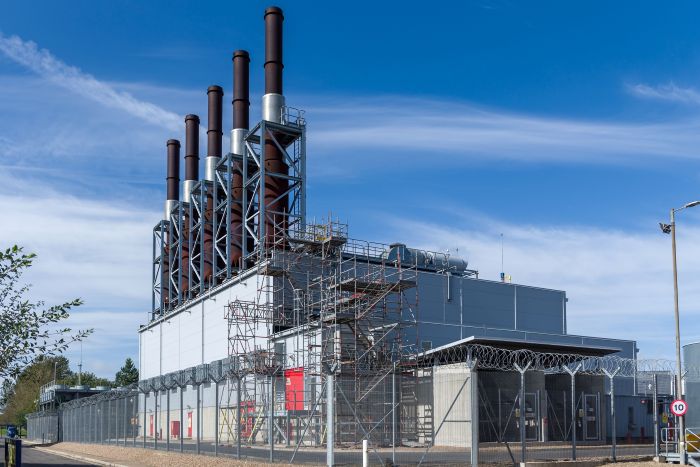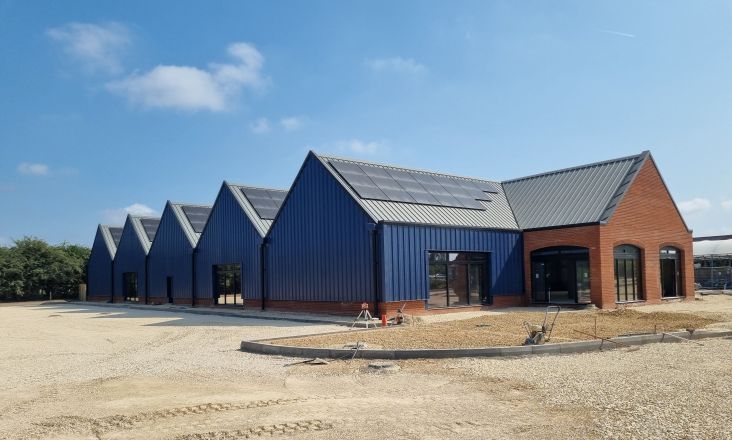Freeths Leicester advises Electric Land on joint venture with Dais Energy Ventures
Architects invited to enter the East Midlands Bricks Awards 2025
 Winners will be revealed at a glittering awards ceremony on Thursday 2nd October, at the Trent Bridge Cricket Ground (4:30pm – 7:30pm) – an evening also offering an opportunity to establish new connections with property and construction professionals from across the region, and hear from keynote speaker Councillor Nadine Peatfield – Leader of Derby City Council, Cabinet Member for City Centre, Regeneration, Strategy and Policy, and Deputy Mayor of the East Midlands.
Other award categories open for entry include: Responsible Business of the Year, Developer of the Year, Sustainable Development of the Year, Commercial Development of the Year, Contractor of the Year, Excellence in Design, Deal of the Year, Most Active Agent, and Residential Development of the Year. All entry forms can be accessed here.
The Overall Winner award will also be presented at the event. This award cannot be entered, with the winner selected from those nominated for the event’s other awards. The Overall Winner of the East Midlands Bricks Awards 2025 will also receive a grand prize of a year of marketing/publicity worth £20,000, with the opportunity to split or gift the marketing to a charity of your choice.
Winners will be revealed at a glittering awards ceremony on Thursday 2nd October, at the Trent Bridge Cricket Ground (4:30pm – 7:30pm) – an evening also offering an opportunity to establish new connections with property and construction professionals from across the region, and hear from keynote speaker Councillor Nadine Peatfield – Leader of Derby City Council, Cabinet Member for City Centre, Regeneration, Strategy and Policy, and Deputy Mayor of the East Midlands.
Other award categories open for entry include: Responsible Business of the Year, Developer of the Year, Sustainable Development of the Year, Commercial Development of the Year, Contractor of the Year, Excellence in Design, Deal of the Year, Most Active Agent, and Residential Development of the Year. All entry forms can be accessed here.
The Overall Winner award will also be presented at the event. This award cannot be entered, with the winner selected from those nominated for the event’s other awards. The Overall Winner of the East Midlands Bricks Awards 2025 will also receive a grand prize of a year of marketing/publicity worth £20,000, with the opportunity to split or gift the marketing to a charity of your choice.
The East Midlands Bricks Awards 2025
What: The East Midlands Bricks Awards 2025 When: Thursday 2nd October (4.30pm – 7.30pm) Where: Derek Randall Suite, Trent Bridge Cricket Ground, Nottingham Keynote speaker: Councillor Nadine Peatfield – Leader of Derby City Council, Cabinet Member for City Centre, Regeneration, Strategy and Policy, and Deputy Mayor of the East Midlands Tickets: Available here Dress code: Standard business attire Thanks to our sponsors:











To be held at:

E.ON and STEM Returners launch second initiative to bring experienced professionals back to work
E.ON is working with STEM Returners for the second time to support professionals who have taken a career break and wish to return to work. The initiative offers 12-week hybrid placements, combining remote work with time spent at E.ON’s offices. Roles are available across engineering and technology.
The partnership focuses on helping candidates gain hands-on experience, with support from STEM Returners, who provide mentoring and career coaching. Successful participants may have the opportunity to secure permanent roles at E.ON.
This collaboration continues E.ON’s commitment to fostering an inclusive workplace, recognising the value of experienced talent that may face barriers to re-entering the workforce. E.ON aims to tackle recruitment bias, especially for women who often find it harder to return to their fields after a break.
The programme builds on the success of last year’s first initiative, which helped individuals like Nicola Kennedy transition back into full-time employment. Since 2017, STEM Returners has helped nearly 600 candidates overcome the challenges of rejoining the workforce, particularly in industries facing skills shortages.
This latest programme will continue addressing the gap in skilled professionals, while offering participants the resources to reintegrate into their careers.
Chamber urges reconsideration of reporting changes in government’s Small Business Strategy
The East Midlands Chamber has expressed support for the government’s forthcoming Small Business Strategy but highlighted concerns over proposed changes to reporting requirements. The strategy, set for release in July, aims to enhance access to finance, address late payments, and streamline business support. However, it may introduce stricter reporting measures, particularly around profit and loss statements, as part of the Economic Crime and Corporate Transparency Act.
The Chamber argues that small and micro-sized businesses, which typically have fewer resources, should be exempt from these additional reporting burdens. The proposed changes could increase paperwork and administrative costs, which could be detrimental to businesses with limited staff and turnover.
Richard Blackmore, Director of Policy and Insight at the East Midlands Chamber, welcomed the broader objectives of the strategy but stressed that any measures adding complexity should be reconsidered. He emphasized the importance of keeping day-to-day operations straightforward for small businesses, particularly during challenging economic times.
East Midlands leaders urge government to reverse pause on Midland Main Line electrification
Upgrades at Derby traffic hotspots get green light
- A38/A5111 Kingsway roundabout
- A38/A52 Markeaton roundabout
- A38/A61 Little Eaton roundabout
Competition concerns raised for Greencore’s Bakkavor acquisition
The Competition and Markets Authority (CMA) is proposing an investigation into the anticipated £1.2bn acquisition of Bakkavor by Greencore.
The transaction would create a leading UK convenience food business with a combined revenue of £4bn and approximately 30,500 employees.Centrica completes transformation of Brigg Energy Park
Supermarkets call for urgent action on deforestation laws
Leading UK supermarkets are pressing the Government to take immediate steps to implement due diligence laws aimed at tackling illegal deforestation in global supply chains. Retail giants, including Tesco, Sainsbury’s, and Lidl, are in a holding pattern as they await progress on key legislation under the Environment Act 2021.
The proposed laws would prevent businesses from using or selling products containing palm oil, cocoa, beef, leather, and soy sourced from deforested land. However, the Government has yet to publish the necessary secondary legislation or set a timeline for its introduction, leaving retailers uncertain about how to adjust their operations in line with potential requirements.
Supermarkets are concerned that the delay in legislation could affect supply chain stability and food security. They warn that the UK could face millions of pounds in export losses to the European Union, as the EU’s deforestation regulations are set to take effect later this year. The retailers argue that aligning UK regulations with EU standards is critical for ensuring competitiveness and preventing disruptions in global trade.
In addition to the business risks, the supermarkets highlight the environmental and social importance of deforestation laws, citing their role in supporting climate change mitigation and ensuring the long-term security of food and commodity supply chains. Increased weather volatility and food price inflation, particularly in sectors like cocoa and coffee, have made addressing these issues even more pressing.
Retailers are urging the Government to act quickly and to adopt secondary legislation that aligns with European deforestation standards. They also emphasised the need for greater supply chain transparency after the point of import to safeguard against products linked to illegal deforestation entering the market.












